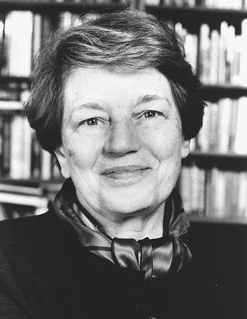A Quote by Stephen Sondheim
Every writer I've ever spoken to feels fraudulent in some way or other.
Related Quotes
The flimsy little protestations that mark the front gate of every novel, the solemn statements that any resemblance to real persons living or dead is entirely coincidental, are fraudulent every time. A writer has no other material to make his people from than the people of his experience ... The only thing the writer can do is to recombine parts, suppress some characterisitics and emphasize others, put two or three people into one fictional character, and pray the real-life prototypes won't sue.
That's really the essence of what any fiction writer does. Some of it is research-based, but most of it is a really long-term, imaginative, empathetic effort to see the world the way someone whose experiences remote from yours might see it. Not every writer works that way; some writers make a wonderful career out of writing books that adhere very closely to how they view the world. The further I go with this, the more interested I get in trying to imagine my way into other perspectives that at first seem foreign to me.
It's akin to style, what I'm talking about, but it isn't style alone. It is the writer's particular and unmistakable signature on everything he writes. It is his world and no other. This is one of the things that distinguishes one writer from another. Not talent. There's plenty of that around. But a writer who has some special way of looking at things and who gives artistic expression to that way of looking: that writer may be around for a time.
If there is a magic in story writing, and I am convinced that there is, no one has ever been able to reduce it to a recipe that can be passed from one person to another. The formula seems to lie solely in the aching urge of the writer to convey something he feels important to the reader. If the writer has that urge, he may sometimes but by no means always find the way to do it.
It feels as though a very disproportionate number of main characters are writers, because that's what the writer knows. Fair enough. But nothing bothers me more in a movie than an actor playing a writer, and you just know he's not a writer. Writers recognize other writers. Ethan Hawke is too hot to be a writer.
Oh, I love labels, as long as they are numerous. I'm an American writer. I'm a Nigerian writer. I'm a Nigerian American writer. I'm an African writer. I'm a Yoruba writer. I'm an African American writer. I'm a writer who's been strongly influenced by European precedents. I'm a writer who feels very close to literary practice in India - which I go to quite often - and to writers over there.
It's great to win a few prizes early on. It helps a writer to get noticed and to get some sales. It can also be a pain in the arse because it gets in the way of the quiet, contemplative time every writer needs, but which is particularly important when you are a new writer finding your own voice, and pursuing the things that interest you.









































